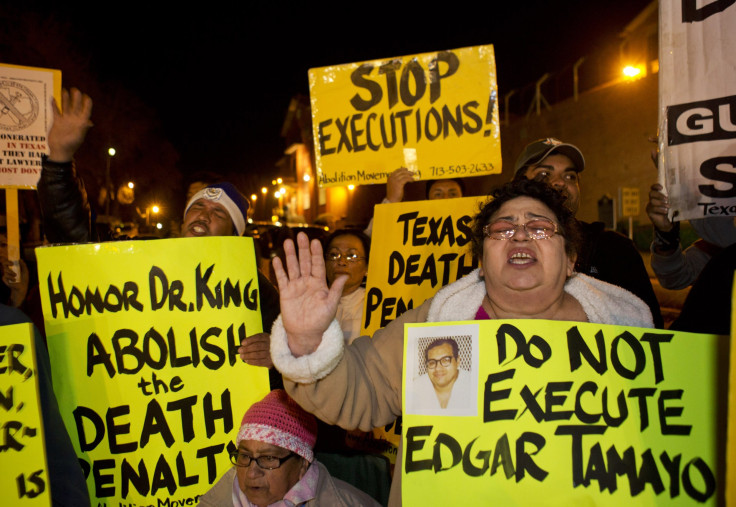
The US Department of State has today lamented the decision of the Texas court to execute Mexican citizen Edgar Tamayo Arias despite pleas from Secretary of State John Kerry and the Mexican government calling for clemency. "The Department regrets the decision of the Texas court to proceed with the execution without revision or reconsideration, but we continue to committed to our international obligations in the case of Avenas," said Department of State spokesperson Marie Harf.
Ms. Harf is referring to the 2004 case of Mexico v. United States of America, known as formally Avena and Other Mexican Nationals, in which the Internaitona Court of Justice (ICJ) found that the United States had breached its obligations under the Vienna Convention of Consular Relations by not allowing consular representation for Mexican citizens imprisoned in the United States. The United States was found guilty of breaching this agreement in 51 cases.
Mr. Tamayo Arias, arrested for the murder of police Officer Guy Gaddis in 1994, was one of the cases considered a breach of the Vienna Convention which the International Criminal Court in The Hague asked the United States to review. Harf said that the this case "illustrated [for the Department of State] the critical importance of Congress approving the initiative for legislation known as 'Consular Notification Compliance Act'." This act would put in place additional mechanisms so that the United States would comply with international obligations.
"We believe that this legislation is very important, but there is little that we can do, and at the end of the day, the decision remained in the hands of the state of Texas," Harf continued. She furthermore revealed that the Department of State would continue to work with Texas and other states to ensure the observance of article 35 of the Vienna Convention to which the United States is signatory.
Ms. Harf made is clear that these actions do not alter the culpability of the accused, but simply create a situation in which the action of American states complies with the international obligations of the United States. "We are not placing doubt on the culpability of Mr. Tamayo, and precisely because of that it is even more imperative that [these obligations] be observed in each judicial process."
Ms. Harf revealed that the issue of consular assistance is a constant between Mexico and the United States. "When we have spoken with Mexico, we have been very clear that we are doing everything we can to pressure Texas to comply with our international obligations."
© 2024 Latin Times. All rights reserved. Do not reproduce without permission.